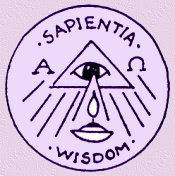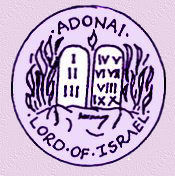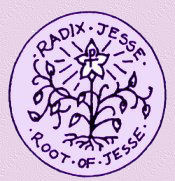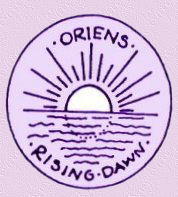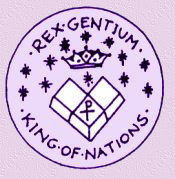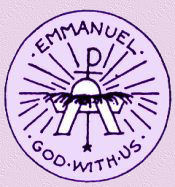The Saints John
How delightful to see in this painting both little Johns, the Baptist and the Theologian, together with the Incarnate Word, Holy Wisdom. Note that the little Evangelist is already writing the opening words of the Prologue of his Gospel.
Meditating the O Antiphons
Beginning today, I will offer reflections on each of the Great O Antiphons. In the Novus Ordo Missae, the Great O's may be sung not only at Vespers each day, in their traditional place before and after the Magnificat, but also as the Verse, taken with an Alleluia in the 2nd Mode, during the procession with the Evangeliary at Mass. This innovation may be understood as a pastoral accommodation to familiarize those of the faithful who have no experience of the Divine Office with the incomparable treasure of the O Antiphons.
The traditional use of the O Antiphon before and after the Magnificat at Vespers also presents it in relationship to the Gospel, for the Magnificat is the unchanging Gospel of Vespers, and the high point of the sacrificium vespertinum.
In monasteries, the first of the Great O Antiphons is intoned by the Abbot or Prior from his place; the choir continues it standing outside the stalls. Candlebearers flank the Abbot or Prior; the church bells are rung continuously throughout the Antiphon and the Magnificat; and the altar is incensed.
The Arrival of Holy Wisdom
In the Novus Ordo Missae, The General Instruction on the Roman Missal emphasizes the importance of the procession with the Book of the Gospels. It is a kind of parousia, the glorious appearing of the Lord "amid cries of gladness and thanksgiving, the throng wild with joy" (Ps 41:5). It is the arrival of the Bridegroom; His advent is greeted with jubilant alleluias and with lighted lamps. It is the descent of the all-powerful Word from the royal throne "into the midst of the land that was doomed" (Wis 18:15).
The melismatic Gregorian Alleluia is the Church's ecstatic cry of welcome; it is an eschatological song, for the arrival of Christ in the sacramental Word anticipates His arrival in glory upon the clouds of heaven (cf., Mt 24:30).
Make Known to Us Your Ways
O Wisdom coming forth from the mouth of the Most High God, Your lordship is over all that is, stretching from the beginning to the end, You who order all things with might and with sweetness, come teach us the path of prudence. Make known to us Your ways.
The age-old text shines with a fresh and immediate meaning every time it is sung: the Holy Gospel--be it the Magnificat or the Gospel of the Mass--deploys the virtus Christi in the midst of the Church. With good reason, then, did Christians of old believe in the healing power of the Holy Gospel read over the sick. "And all the multitude sought to touch him, for virtue went out from him, and healed all" (Luke 6:19).
The Last Gospel of the Mass, the Prologue of Saint John, is but one example of the Gospel being read super populum, for the healing of the sick, the blessing of non-communicants, and the deliverance of those tormented by evil spirits.
Prudence
We acclaim Christ the Logos in His appearing as Holy Wisdom, the eternal Wisdom of the Father, and we make a very specific petition: "Come, teach us the way of prudence." What is prudence? It is the habit of using our reason, in every circumstance, to discern what is our true good and of choosing the means to achieve it. Saint Thomas calls prudence "right reason in action." Prudence is an austere virtue because it means that we will not allow our decisions, our course of action, or our reactions to be determined by our emotions.
When we allow our choices to be determined by fear--fear of loss, fear of rejection, fear of making a mistake, fear of failure, fear of the future, or any other fear--we are not being prudent. When we allow our choices to be determined by an unwise love, a disordered love, we are not being prudent. When we choose impulsively, we are not being prudent. When we delay choosing and put off acting, we are not being prudent. Prudence has to do with choosing wisely so as to act wisely. And so today, we cry out to Wisdom, begging to be taught the way of prudence.
The Might and Sweetness of God
Our plea is answered immediately in the chanting of the Magnificat (or of the Gospel of the Mass) and, then, most perfectly, in the adorable mystery of the Most Holy Eucharist. In response to our cry, the Word is sent forth ex ore Altissimi, "from the mouth of the Most High." Fortiter. The might of God comes to us in our weakness. Suaviter. The gentle sweetness of God comes to us in our bitterness. "Come to teach us the way of prudence." The prudence of God comes to rescue us from our folly.
The Cortège of Wisdom
The "secret and hidden Wisdom of God, which God decreed before the ages for our glorification" (1 Corinthians 2:7) comes to us enfleshed in a human story. The long genealogy of Saint Matthew invites the ancestors of Christ to precede Him in His advent, to surround him in His appearing, and to join with us in hearing and in adoring Him. All of the names pronounced in the Genealogy together form the royal cortège of Wisdom.
Wisdom in Our Midst
Will the advent of Holy Wisdom, her arrival and appearing in our midst, leave us unchanged? Today is the meeting of our weakness with the might of the Logos, the meeting of our harshness with God's disarming gentleness, the meeting of our shortsightedness with the prudence of the ages.
Shall we plead for Wisdom's arrival and then refuse her advances? Shall we retreat before the arrival of the long-desired Word? Or shall we go out to meet Wisdom with lighted lamps?
The Taste of Wisdom
Holy Wisdom's arrival in what Evelyn Underhill calls "the liturgic Word" is completed in the mysteries of Christ's Sacred Body and Precious Blood. Our communion with Wisdom is two-fold: in Word and in Sacrament. We go to the altar, Wisdom's table. To our "Come!" Wisdom replies, in turn, "Come, eat my bread and drink the wine which I have mingled for you. Forsake childishness, and live, and walk by the ways of prudence" (Pr 9:5-6).


